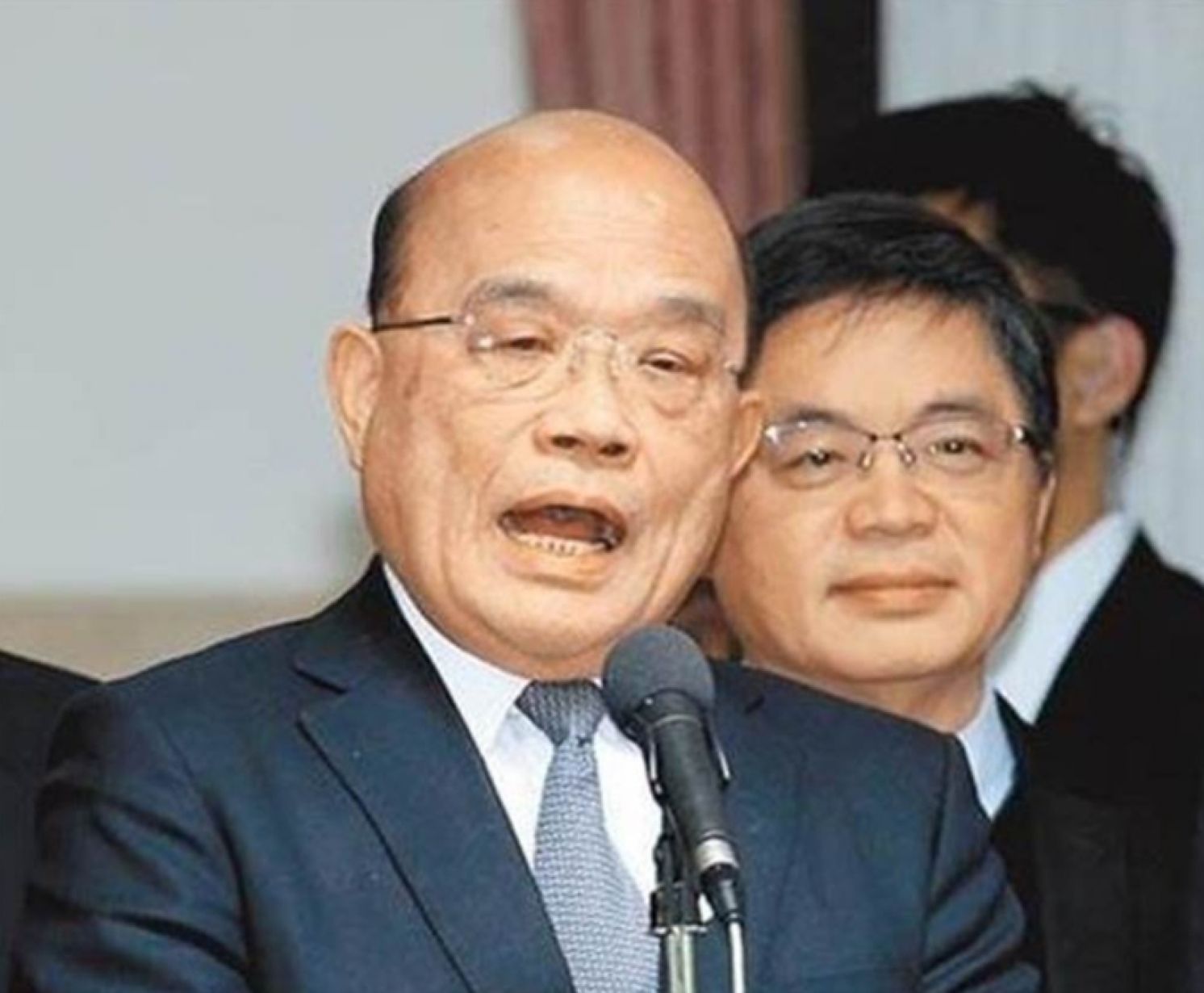
When Exchanges Become Infiltration:DPP's China-Phobic Syndrome
By Liu Hsin-yuan
United Daily News, November 12, 2021
It is reported that the Mainland Affairs Council which handles cross-strait matters informed the Ministry of Education that mainland China had established an office at the National Tsing Hua University in Hsinchu to recruit talent. The ministry determined that China intended to use that office to steal Taiwan’s high-tech secrets, and the action violates the law governing Cross-Strait relations. The ministry demanded the office cease to function and leave the campus immediately. Premier Su Tseng-chang stated that China increasingly attempts to annex Taiwan by using various means to create chaos and steal information, so people in Taiwan must pay close attention to save their own country and be careful to defend everywhere; he will also ask all governmental agencies to watch this matter.
Premier Su’s statement seems to be a deja vu, for it is exactly the slogan “Watch out, the Communist spies are beside you!” during the so-called White Terror period. This terrible memory has been sealed off for almost 50 years and is now woken up in Taiwan which claims to be deeply rooted in democracy. It is particularly surprising that the warning came from the premier himself.
According to reports, defending democracy everywhere probably means to prevent mainland China from infiltrating in two fronts: namely, stealing high-tech secrets and creating chaos. Of course, it is important to protect secrets; in Western countries like Europe and the United States, the targets are those with bad records, but in Taiwan, Cross-Strait exchanges are suppressed with tiny suspicion in the name of national security. This is tantamount to make a mountain out of a molehill. If one suspects that China infiltrated Taiwan on the evidence of some trivial matters, then any exchange might be risky, why don’t we return to the period of suppressing the Communist rebellion and cut off Cross-Strait exchanges completely?
As to the accusation of creating chaos, it is more puzzling. Except for few small-scale turmoil during the period of the civil war between the Nationalist government and Chinese Communists, the Communists did not create huge chaos in Taiwan. In the past 20 years, China’s model revolutionary plays have been performed publicly in Taiwan, cars displayed with the mainland Chinese flag appeared occasionally on Taipei’s streets to propagate Communism, and people are used to that scene. Premier Su has underestimated Taiwanese people’s immunity to Chinese Communists and overestimated the mainland’s ability of united front tactics.
The ruling Democratic Progressive Party (DPP) in Taiwan is adept at using nationalism to provoke Cross-Strait emotions. Only a few days after the incident at National Tsing Hua University, DPP Legislator Fan Yun, together with the Economic Democracy Union and the National Students’ Union of Taiwan held a press conference entitled “Don’t allow the family relationship between Tsing Hua universities across the Strait to become the break point of U.S.-Taiwan strategic confidence.” The press event used several pictures of exchanges between the two Tsing Hua universities as evidence that Taiwan’s National Tsing Hua University had known the situation.
If one claims that we should save our own country, then why U.S.-Taiwan strategy gets involved? It is more terrible to accuse people to be Communists just because of several pictures. This reminds people of the behavior of the Red Guards during the mainland’s Cultural Revolution period. The Red Guards had become the tool of the ruling class to smear and crush the intellectuals. With the atmosphere of extremely unreasonable fear under DPP administration, many simple Cross-Strait exchanges are cancelled out of fear.
During the 1990s, President Lee Teng-hui spoke out loudly at political rallies that Taiwanese people had not grown up under duress. This sentiment was echoed by many people. Lee’s words had at least two meanings. First, Taiwanese people are courageous enough not to be intimidated by mainland China’s verbal coercion and military threats. Second, Lee wanted people who advocated unification with China to shut up and not use mainland Chinese military threats to intimidate Taiwan independence forces. Ironically, the DPP now learns from the mainland to scare Taiwanese people and uses China’s tactics better.
Now the Minister of Education Pan Wen-chung is involved in this incident. On the one hand, he blasted National Tsing Hua University for failing to supervise, and on the other hand, he wants to investigate this issue fully. When some universities questioned that the education minister had infringed upon academic freedom, the minister said that the precondition of the academic freedom is that it does not violate the law. If this is the case, we must bring attention to the education minister that the DPP had more than once sponsored political events on university campuses. Recently the DPP openly organized a public policy workshop on the campus of National Taipei University. Does this violate Article 6 of the Educational Fundamental Act which bars schools from advocating or sponsoring activities for specific political groups? The education minister should lead by example by treating violators of law with same standards, otherwise, he sets the worst possible example in education.